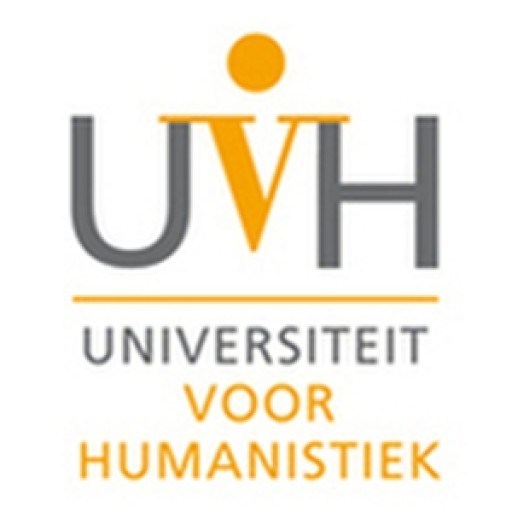The Graduate School at the University for Humanistic Studies offers a comprehensive and interdisciplinary Master’s program designed to cultivate critical thinking, ethical awareness, and a deep understanding of humanistic disciplines. This program emphasizes the development of analytical and reflective skills essential for addressing complex societal issues through a human-centered perspective. Students are encouraged to explore diverse fields such as philosophy, cultural studies, ethics, and social sciences, fostering a broad and nuanced understanding of human experiences and values. The curriculum integrates theoretical knowledge with practical application, enabling students to engage with real-world challenges in various professional contexts, including education, social policy, cultural management, and non-profit organizations. Throughout the program, students participate in seminars, workshops, and independent research projects, supported by experienced faculty members who are experts in their fields. The program promotes an international outlook, welcoming students from diverse backgrounds and encouraging cross-cultural dialogue and collaborative learning. Graduates of this program are well-equipped to pursue careers in academia, research, policy development, advocacy, and leadership roles that require critical judgment and ethical responsibility. The curriculum also emphasizes personal development, fostering self-awareness, moral integrity, and a lifelong commitment to humanistic values. With a flexible structure that combines coursework, research, and internships, students can tailor their studies to align with their individual interests and career goals. The Graduate School’s environment stimulates intellectual curiosity, ethical reflection, and a commitment to social justice, preparing graduates to contribute meaningfully to society and to promote positive change within their communities.
The Graduate School at the University for Humanistic Studies offers a comprehensive and interdisciplinary doctoral program designed to advance knowledge and foster critical thinking in the field of humanistic studies. The program emphasizes deep engagement with philosophical, cultural, historical, and social issues, encouraging students to develop original research contributions that address complex questions about human nature, society, and values. Students are provided with a supportive academic environment where they can collaborate with renowned scholars and experts across various disciplines, facilitating a broad and nuanced understanding of humanistic questions. The curriculum integrates rigorous coursework, seminars, and workshops that cultivate analytical skills, theoretical knowledge, and research methodologies. Throughout the program, doctoral candidates are mentored to develop their dissertation projects, which are expected to make a significant scholarly impact. The program also promotes international cooperation and exchange, allowing students to participate in conferences and collaborative projects worldwide. As part of their training, students learn to communicate their findings effectively through publications and presentations, preparing them for careers in academia, research institutions, cultural organizations, or policy development. The Graduate School emphasizes the importance of ethical reflection and societal relevance, encouraging students to consider the practical implications of their research. Graduates of the program are equipped with advanced analytical capabilities and a profound understanding of humanistic theories, enabling them to contribute thoughtfully to societal debates and academic discourse. Overall, the doctoral program at the University for Humanistic Studies aims to cultivate independent scholars committed to advancing humanist thinking and addressing the pressing issues of contemporary society through rigorous research and innovative insights.
Other requirements
The Graduate School University of Humanistic Studies offers a range of financing options to support students throughout their academic journey. Tuition fees for master's and doctoral programs vary depending on the specific course and residency status, with international students often qualifying for different fee structures compared to Dutch residents. The university provides transparent information regarding fee amounts on its official website, along with guidelines for potential scholarships and financial aid opportunities.
Students are encouraged to explore funding options early in their application process to ensure they meet deadlines and gather all necessary documentation. One of the primary sources of financial support at the university is the availability of scholarships aimed at promoting diversity, research excellence, and academic merit. These scholarships may cover partial or full tuition fees and sometimes include stipends for living expenses. Eligibility criteria and application procedures are detailed on the university’s scholarship webpage, and interested students should carefully review these guidelines to maximize their chances of receiving aid.
In addition to scholarships, students can seek external funding through government grants, educational loans, and private foundations. The Dutch government offers loan schemes and grants for both domestic and international students, which can be utilized to finance studies. The university’s student services office offers guidance and support in navigating these external funding sources, including assistance with application processes and documentation requirements.
Part-time employment opportunities are another avenue for students to finance their education. The university’s location in the Netherlands provides access to a vibrant job market, including roles related to research, teaching assistantships, and administrative support within the institution. These positions often offer remuneration that can help offset living expenses while gaining valuable professional experience.
Furthermore, the university emphasizes financial planning and responsible budgeting, offering resources such as financial counseling and workshops. Prospective students are encouraged to develop a comprehensive financial plan covering tuition, living costs, study materials, and unforeseen expenses.
In summary, the Graduate School University of Humanistic Studies provides a comprehensive support system for students seeking financial assistance, combining scholarships, external funding options, part-time employment, and financial planning resources to facilitate a smooth and affordable academic experience. Detailed information about current fees, scholarship opportunities, and application procedures is available on the university’s official website.
The Graduate School of the University of Humanistic Studies offers advanced educational programs focused on applying humanistic principles and methods to various professional fields. The curriculum emphasizes critical thinking, ethical considerations, and the development of practical skills to enhance societal well-being. Students are engaged in research projects, seminars, and workshops designed to foster an in-depth understanding of humanistic issues and to promote innovative solutions for complex social challenges. The programs are characterized by a multidisciplinary approach, integrating philosophy, ethics, social sciences, and the arts, providing students with a broad and holistic perspective. Faculty members are experts in their respective fields, often involved in pioneering research and societal initiatives. The graduate programs aim to prepare students for careers in education, counseling, social work, policy development, and other sectors where humanistic values are essential. The university emphasizes small class sizes and personalized mentorship to ensure a supportive learning environment. Collaboration with various organizations and institutions enables students to gain practical experience and to contribute meaningfully to societal development. The degree awarded is recognized both nationally and internationally, facilitating career advancement and scholarly pursuits. The university also encourages lifelong learning and offers opportunities for continued professional development through workshops, conferences, and publication support. Overall, the Graduate School strives to cultivate compassionate, ethical, and competent professionals committed to fostering respect, dignity, and social justice in diverse contexts.










